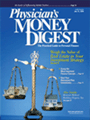Publication
Article
Impart Memories Before They Are Gone
Author(s):
Over the next few months, there will be muchwritten and said about President RonaldReagan. Known as the "Great Communicator,"you have to wonder what he wouldhave wanted to communicate to his loved ones andfriends, but couldn't, during the time he was silenced byAlzheimer's disease.
Over 5 million Americans suffer from Alzheimer'sdisease (AD), the progressive, degenerative disease ofthe brain, which is the most common form of dementia.It affects one of 10 Americans over age 65, andnearly half of those over age 85.
Experts predict that AD will affect more than 14million people by 2050 unless a cure is found.Although there's a great deal of statistical informationabout the disease, little is written about the sufferingsof the millions of loved ones who, each day, painfullyagonize over all those things that should have beenshared before AD claimed the minds of those who sufferfrom this insidious disease.
Having the Last Word
My mother passed away 3 years ago after losing ayearlong battle to breast cancer. Not wanting her familyand friends to agonize over the thought, "I wish she hadsaid or told me some things," my mother departed thisworld with few unanswered questions about how shefelt toward those she loved. She believed that if somethingwas worth saying, it was also worth putting onpaper. Therefore, among her important papers, I founda five-page, handwritten love letter that she had writtento me soon after she discovered that she had cancer. Theletter was addressed "to my firstborn" and opens with aphrase my mother frequently used throughout her lifetime,"Have I told you today that I love you?"
That wonderful letter, with answers and informationonly my mother could have provided, is truly a legacy oflove. In essence, my mother helped to preserve that legacyin what is sometimes referred to as an ethical will.
Understanding Ethical Wills
Not to be confused with legal documents such asa living will or a last will and testament, an ethicalwill is an informal document that is an inexpensiveand effective way to express genuine feelings to yourfamily and friends. It also includes everything elsefrom lessons you have learned to an honest attempt toresolve unresolved issues.
Ethical wills have been around for over 3000 yearsand are often written by people facing challenging andtransitional stages in life. Unlike the stipulations anddirectives contained in a living will or a last will and testament,which come into play at the end of life, theinformation contained in an ethical will can and shouldbe shared during the writer's lifetime.
An ethical will can be one of the most caring and significantgifts you can provide to your family and friends.Best of all, you don't need a lawyer to prepare this valuabledocument. The following is a list of items to considerincluding in your ethical will:
- True and positive feelings
- Words of praise to those who deserve it
- Apologies and requests for forgiveness, if necessary
- Offerings of forgiveness, if necessary
- Words of wisdom (without lecturing)
- Honest attempts to settle unresolved issues anddisputes
Wisdom of the Past
Also consider including some family history andinformation about a side of you that others might notknow, such as the following:
- Interesting facts about you and your ancestors
- Things remembered about your parents, grandparents,etc
- Moments and experiences to be remembered
- What life events were most important to you
- Your likes and dislikes
- What you did for fun
- What made you laugh and what made you sad
- Some of the most important things you did
- Your responsibilities
- How you dealt with problems
- Your religious/spiritual upbringing and whetheryou regularly practiced
- Your perception of God
- Your health problems
- Pets you had
- Your habits—good and bad
- Your satisfaction and/or regrets with life
- Your political party
- Your hobbies and pastimes
- Your favorite TV shows, movies, and books
- How you met your spouse or partner
- Your philosophies
- Your favorite job
- Your favorite and least favorite saying
- Memories of the person you're writing to
You may want to include short stories about yourlife—both funny and poignant. Also, compile annotatedand dated family photographs.
Some Final Housekeeping
Separate from your ethical will, you might also considerincluding pertinent information for those you willleave behind to ease the burden of losing a loved one.Detail the way you would like to be remembered to helpprevent loved ones from guessing or, worse, fighting overfuneral arrangements and final wishes.
Be sure to list the location of important papers andtangible assets to prevent heirs and loved ones fromgoing on a scavenger hunt. Within these papers, includedetails about your family's medical history.Provide those you trust with the location of sparekeys, the combination to the safe, your computerpasswords, and the various other access codes necessaryto retrieve vital information.
Prepare a list of your key advisors, such as yourattorney, stockbroker, spiritual director, close friends,etc. Include their name, address, phone and fax numbers,and e-mail address. Leave detailed instructionsabout the care and well being of your pets.
Consider:
To keep financial affairs in order for your heirs, compiledetails regarding what bills should and should notbe paid and who owes you money. Provide any necessaryinstructions for the intended use of bequeathedassets. What assets should be held onto, andfor how long? What assets should be sold, and when?
While you are still well, be sure to tell your familyand trusted advisors where you keep this information.All your careful design will be to no avail if your familycan't locate your ethical will.
Finally, don't forget to say, "I love you," to theones you love.
Martin Kuritz is a retired estate and financialplanner who, for more than 30 years, has helpedfamilies economically and emotionally prepare forthe inevitable. He wrote The Beneficiary Book: AFamily Information Organizer (Active Insights;1992), an information publication with fill-in-theanswersworksheets that offers a convenient placeto record, organize, and centralize final testimonies. For more information,call 800-222-9125 or visit www.active-insights.com.
